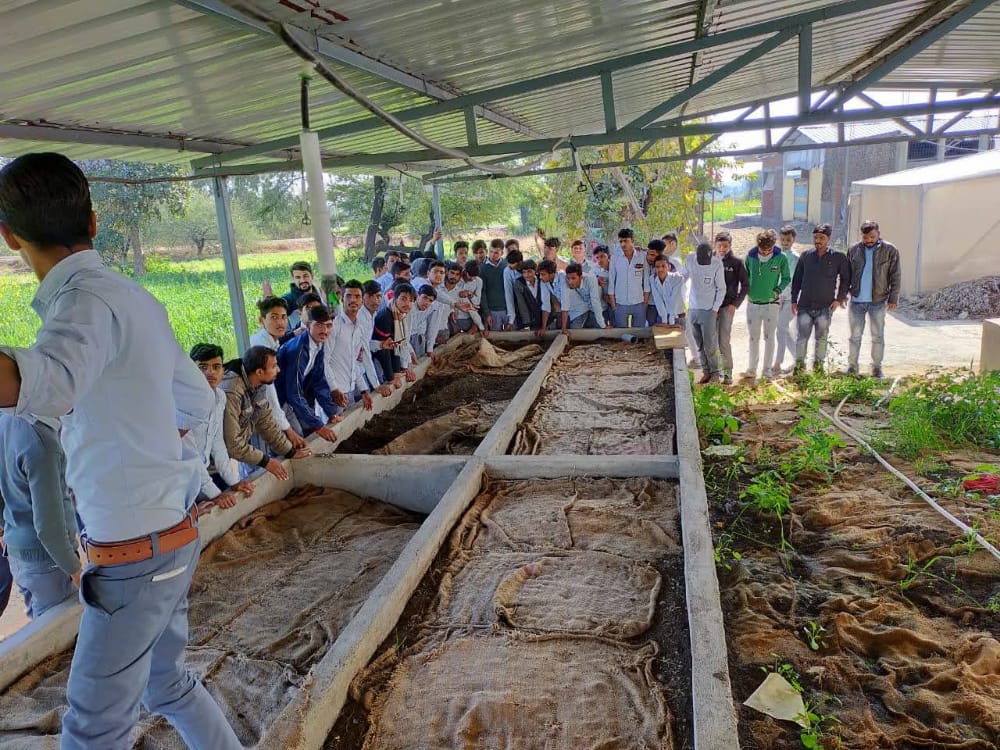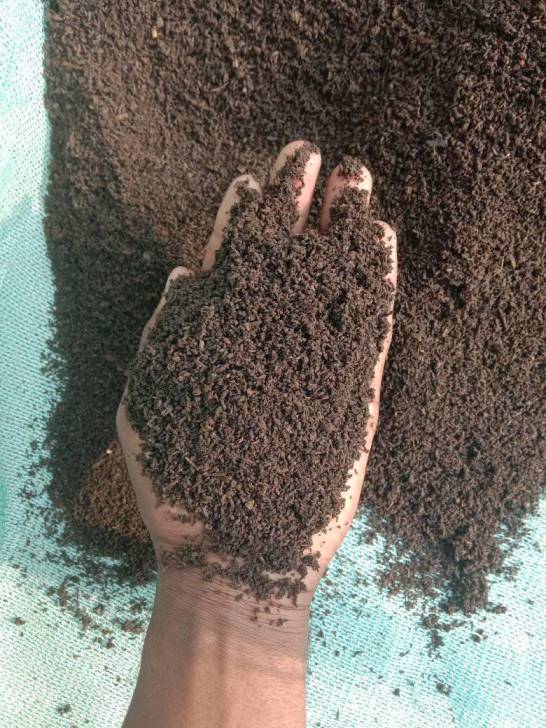Jitendra Aatodiya (22), a resident of Ratlam in Madhya Pradesh, is making and selling organic fertiliser that is 33 times cheaper than what is available in the market. A graduate in agricultural sciences, Jitendra comes from a farming background and had a keen interest in pursuing organic and natural farming methods.
“The only way of life that I know is farming,” Jitendra tells The Better India. A vocal supporter of organic farming, he tells us that despite seeing good yields in organic farming, the cost of organic fertiliser is what keeps people away.
Jitendra’s aim has been to significantly reduce the cost of organic fertiliser and bring it down to Rs 6/kg.

“While bigger production units have to recover costs of marketing and transporting the organic fertiliser, I rely on direct sales and have no such extra costs to be added,” he says. In bringing down the costs significantly, Jitendra hopes to encourage many other farmers to turn to organic fertilisers.
In 2018, Jitendra enrolled for a three-month course with NABARD (National Bank for Agriculture and Rural Development), during which he learnt about various practises to make organic fertiliser. The course fee was Rs 500 and Jintedra says that he benefited immensely from it. Soon after completing this course, Jitendra launched his company called Aatodiya Vermi Agritech, which produces and sells organic fertiliser.
He says, “We have seen that organic farming is far more productive than inorganic farming, however, for those looking to shift from inorganic to organic farming, the soil will take time to readjust and show its benefit.” He still urges those making the shift to use large quantities of organic manure during the first three years to make sure that the long-term impact of having used chemical fertilisers is neutralised. “The yield will increase per year on such farms, if one is to try this method,” he adds.
A case for going organic

Asked why he developed an interest towards organic farming, he says that the reason was staring him in the face. “The place I belong to is known for its generous chilli crop. However, with the passage of time, the chilli crop started getting infected and that in turn led to lower yields every year. The chemical fertilisers were not helping in any way,” he laments. The leaves would all start shrivelling up and the crop would not survive at all. This prompted Jinendra to switch to organic farming.
After the training, Jitendra says that in 2020, he decided to start his own vermicomposting plant to try and make organic fertilisers affordable and accessible. “In the beginning, there was a lot of resistance to adopt to this method. They had no idea about the results and did not want to waste their time and money on any new method,” says Jintendra. It was only after they saw Jintendra’s family reap the benefits, that they started to show an interest in organic farming.
Having set up the unit, Jitendra says, “We have set up 24 enclosures within which we add the cow dung and release the earthworms. We use up to 30 trolleys of cow dung at one go. This is left for two and a half months, with constant manual mixing taking place. It is a laborious task.” Jitendra’s family took a loan of Rs 20 lakhs to set up the business. This included a 44 per cent waiver from the government.
This waiver is to encourage more people to start making organic manure. Last year, Jitendra was able to extract 500 quintals of organic manure, which was sold in the open market. “Today, we have not done any marketing and whatever is made is sold to the farmers in my own village and some to people who know me,” he says. If one were to buy 1 kg of organic manure from the open market, it could cost anywhere between Rs 50 to Rs 200, depending on the brand. Jitendra however, is selling the same at Rs 6 per/kg and that is the USP of his brand.
One of the reasons why Jitendra is selling the fertiliser at this cost is to get more and more people to use it.

“The more people who use it, the better for the farmland, and the easier for us to get the prices further down. The benefits from adopting this method of farming have been seen and experienced, and in three years, the dependence on chemical fertilisers can be completely stopped,” says Jitendra.
For this 22-year-old, farming is a way of life, and he welcomes other farmers to connect with him and learn how to make their own organic fertiliser. “The idea is to get as many people away from chemical fertilisers as possible,” he says.
Jitendra can be contacted at +91-7389269659 for any further query.
(Edited by Yoshita Rao)
No comments:
Post a Comment